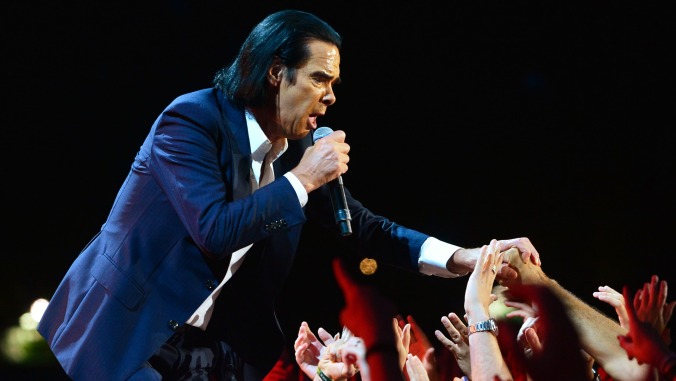After losing two sons, Nick Cave says commiseration with fans has been a doorway to healing
"People say, 'How can you go on tour?' But for me it’s the other way around. How could I not?"

Nick Cave can’t just move on. The musician, known primarily for his work with his band The Bad Seeds, has faced unexpected loss in a rare and bottomless manner: he has watched two of his sons die less than a decade apart.
In 2015, Cave’s 15-year-old son Arthur was killed after falling from a cliff near their family home in England. Then, this past May, his 31-year-old son Jethro died from causes that haven’t been publicly shared. It’s a type of grief that can’t be spoken or theorized by someone who hasn’t experienced it, and one that Cave says has been important to express, grapple with, and ultimately share. Cave’s entire creative process changed after he lost Arthur, he says—it’s a momentous shift that is partially chronicled in “Faith, Hope and Carnage,” a new book of interviews between Cave and journalist Seán O’Hagan, due out September 20.
“I try to write from the point of view,” Cave tells The New York Times, “that something can happen to your life that is absolutely shattering that can also be redemptive and beautiful.”
Although albums like 2019's haunting Ghosteen lay bare Cave’s grief in a luminous and affecting manner, much of his personal expression recently has come through The Red Hand Files, the online column Cave started in 2018.
In each issue of The Red Hand Files, Cave thoughtfully and thoroughly answers a question from a reader. Over the years, submissions have been wide-ranging, and as goofy as they are intimate: “Tell us a joke”; “How long will I be alone?”; “What made you become a vegetarian?”; “What is the point in life?” “Who do you want to win Love Island?”
Per Cave, interacting with fans via his personal website has been an opportunity to both visualize “a way out” from his own grief and find solidarity with the people who, coming from a similar place of pain, have connected with his work.
“The terrifying thing about when Arthur died was that it felt like, How could this feeling ever be any different?” Cave explains. “I don’t want everything I talk about and everything I am to revolve around these losses, but I feel compelled to let people in the same situation of grief know — and there are hundreds of people like that writing in to The Red Hand Files — that there is a way out.”
Cave says his live shows have also been a source of healing and describes playing for his audience now as “entirely repaying a debt.”
“It’s — my other son has died. It’s difficult to talk about, but the concerts themselves and this act of mutual support saves me,” Cave says “People say, ‘How can you go on tour?’ But for me it’s the other way around. How could I not?”